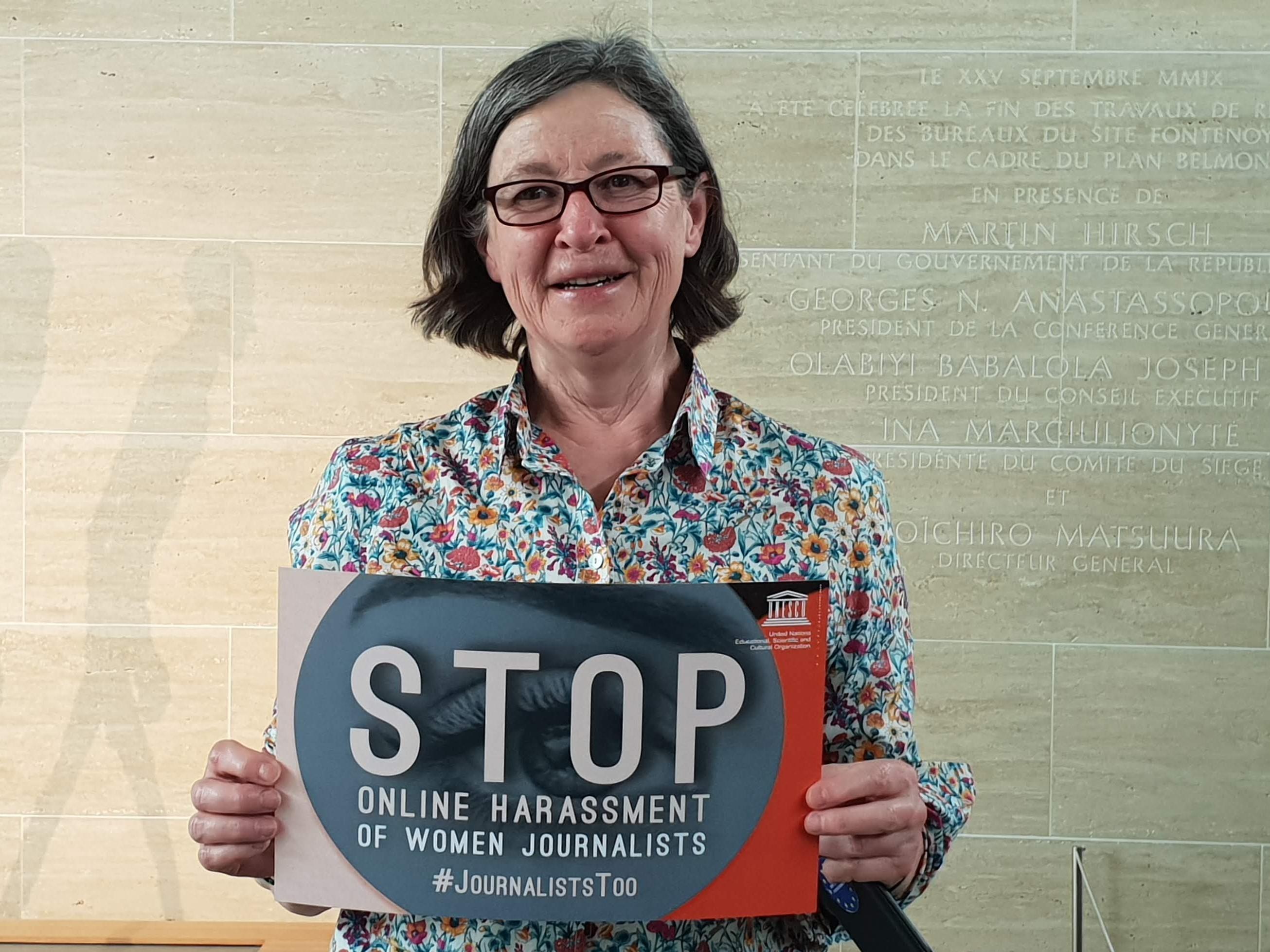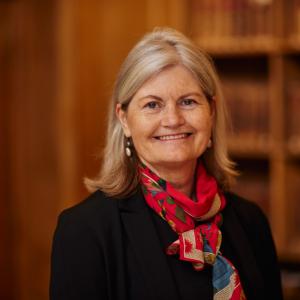Book launch - How Many More Women? The Silencing of Women and How to Stop It by Jen Robinson and Keina Yoshida
Jen Robinson, Barrister at Doughty Street Chambers, London
Professor Jacob Rowbottom, Professor of Law and Tutorial Fellow at University College, Oxford
Gill Phillips, Director of Editorial Legal Services for Guardian News & Media Limited
The Bonavero Institute of Human Rights is delighted to host the launch of the book How Many More Women? The Silencing of Women and How to Stop It by Jen Robinson and Keina Yoshida.
We are in a crucial moment: women are breaking through the cultural reticence around gender-based violence. But just as survivors have begun to feel empowered to speak out, a new form of systematic silencing has made itself more evident: rich and powerful men are using teams of lawyers to suppress allegations and prevent newspaper stories from running.
Individual women, advocacy groups and journalists find themselves fighting against censorship. The law is being wielded to reinforce the status quo of silence that existed before #MeToo.
If women cannot speak about their abuse - and journalists are fearful of telling their stories - then how can we understand the problem of gender-based violence in our society? And how can we even begin to end it?
In How Many More Women? internationally-acclaimed human rights lawyers, Jennifer Robinson and Keina Yoshida, examine the broken systems and explore the changes needed in order to ensure that women's freedom, including their freedom of speech, is no longer threatened by the laws that are supposed to protect them.
Author
Jen Robinson

Jen Robinson is a barrister at Doughty Street Chambers in London specialising in international law, media law and human rights. Jen has acted in key human rights cases in domestic, regional and international courts. She built a global human rights program to support public interest and movement lawyering which had invested an estimated $70m in training young lawyers and supporting strategic litigation. Her recent book, How Many More Women? Exposing how the law silences women, explores the legal backlash to the MeToo movement.
Chair
Professor Kate O'Regan

Kate O'Regan is the inaugural Director of the Bonavero Institute of Human Rights and a former judge of the South African Constitutional Court (1994 – 2009). In the mid-1980s she practiced as a lawyer in Johannesburg in a variety of fields, but especially labour law and land law, representing many of the emerging trade unions and their members, as well as communities threatened with eviction under apartheid land laws. In 1990, she joined the Faculty of Law at UCT where she taught a range of courses including race, gender and the law, labour law, civil procedure and evidence. Since her fifteen-year term at the South African Constitutional Court ended in 2009, she has amongst other things served as an ad hoc judge of the Supreme Court of Namibia (from 2010 - 2016), Chairperson of the Khayelitsha Commission of Inquiry into allegations of police inefficiency and a breakdown in trust between the police and the community of Khayelitsha (2012 – 2014), and as a member of the boards or advisory bodies of many NGOs working in the fields of democracy, the rule of law, human rights and equality.
Discussants
Professor Shazia Choudhry

Shazia is Professor of Law and the Jeffrey Hackney Tutorial Fellow in Law at Wadham. She is also an Academic Bencher and Associate Academic Fellow at the Inner Temple.
Her research is focused on gender, human rights and violence against women and seeks to examine various dimensions of these areas from an interdisciplinary and feminist perspective. In doing so she employs doctrinal, theoretical and empirical methods. Her scholarship sits at the interface of criminal law, human rights law and family law.
She has published three books. Her monograph (with Herring) European Human Rights and Family Law (Hart, 2010) provides a theoretically informed and detailed analysis of the impact of the ECHR and the HRA on the substantive areas of family law. She is also editor with Herring and Wallbank of Rights, Gender and Family Law (Routledge-Cavendish 2009) a collection which explores the links between gender and rights and editor with Herring of The Cambridge Companion to Comparative Family Law (Cambridge University Press 2019) a collection which explores the key questions and themes that have faced family law across a number of key jurisdictions. A full list of all her publications, including peer reviewed journal articles and chapters can be found here https://www.wadham.ox.ac.uk/people/fellows-and-academic-staff/c/shazia-choudhry
Her work within the field of violence against women and human rights is also evidenced by her advisory work and appointments. This has included her appointment as Specialist Adviser to the Joint Parliamentary Committee on Human Rights Inquiry into Violence against Women (2014-15) and Specialist Adviser to the Joint Committee on the Draft Domestic Abuse Bill (2019), as an expert evaluator for the European Commission, as an expert for the Council of Europe (including participating in the GREVIO monitoring mission to Serbia) and as an expert consultant for the UNFPA. She is also an expert advisor to Women’s Aid on research, policy and training. Her recent research on the issue of child contact and victims of domestic abuse has been drawn upon by members of the judiciary, members of Parliament, the Victims Commissioner and the Home Affairs (Parliamentary) Committee in its recent report on the proposed Domestic Abuse Bill 2018.
She is currently working on two externally funded projects. The first, with Dr Philippa Williams (Geography) as Joint PI, is a British Academy funded project under the Heritage, Dignity and Violence Call: ‘Surviving Violence: Everyday Resilience and Gender Justice in Rural-Urban India.' The multidisciplinary project will be conducted over a 21-month period and draws on civil society -academic partnerships in 3 key states in India. It aims to address the gap between law, policy and access to support services and justice for domestic abuse victims in India and aims to inform evidence-based policy reform.
The second, as sole PI, is a two year project awarded major funding by the Oak Foundation: ‘The Family Justice Response to Allegations of Domestic Abuse: A Comparative European Analysis.’ Working with key stakeholders in the family justice system across six European Countries (England & Wales, France, Spain, Italy, Denmark and Bosnia & Herzegovina) it will analyse how applications for contact and residence are dealt with against the context of domestic abuse allegations. It aims to investigate key themes in the implementation of family law in this area within the context of state obligations towards victims of domestic abuse and inform law and policy responses where necessary.
Professor Jacob Rowbottom

Jacob Rowbottom is Professor of Law at the University of Oxford and a Fellow of University College, Oxford. He writes widely on freedom of speech, media freedom and the regulation of the democratic process. He is the author of Democracy Distorted and Media Law.
Gill Phillips

Gill Phillips is a media law specialist. She currently works as an in-house lawyer for Guardian News & Media Limited (publishers of the Guardian and Observer newspapers and theguardian.com). She advises on a range of content-related matters including defamation, privacy, data protection, copyright, contempt of court and reporting restrictions. She is the author of a chapter on ethical issues in large-scale journalistic investigations in the Routledge Companion to Journalism Ethics.



